Holistic Approaches to Treating Acne: Natural Solutions for Healthy Skin
Are you tired of battling stubborn acne with harsh chemicals and medications that only seem to make matters worse? It’s time to discover a holistic approach to treating acne that focuses on natural solutions for healthy, glowing skin. With these tried-and-true methods, you can say goodbye to the endless cycle of breakouts and hello to clear, radiant skin. Join us as we explore the power of holistic skincare in our latest blog post!
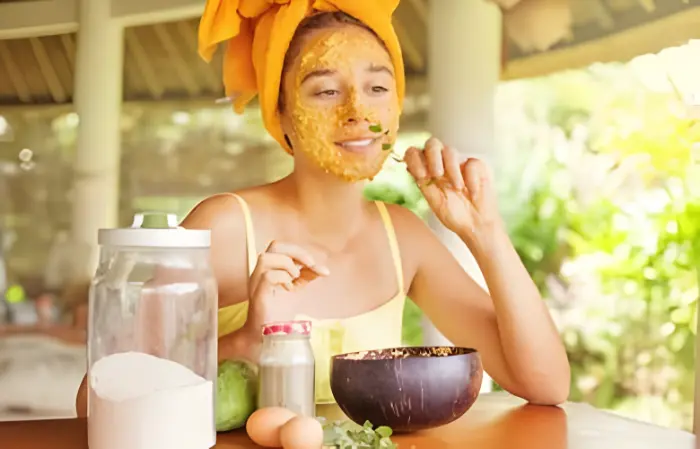
Introduction to treating Acne: Causes and Common Treatments
Acne is common worldwide, affecting millions. Oil, dead skin, and bacteria clog follicles, causing pimples and other lesions. Although acne is usually associated with adolescence, it can affect people of any age.
Several factors contribute to the development of acne, but the cause is not fully understood. One major factor is hormonal changes, which can increase oil production in the skin. This is why teenagers going through puberty are more prone to developing acne. Other hormonal imbalances, such as those experienced during pregnancy or menopause, can also trigger acne breakouts.
Genetics also plays a role in the development of acne. If you have a family history of acne, you are more likely to develop it. Apart from medication and conditions that affect hormone levels, lifestyle factors such as diet and stress can also contribute to acne. Processed and unhealthy foods can cause inflammation in the body and worsen acne. Stress increases sebum production and inflammation in the skin, making it a potential trigger for breakouts.
Various treatments are available for managing acne symptoms; however, many conventional treatments come with unwanted side effects such as dryness, irritation, and even antibiotic resistance. That’s why many individuals turn towards holistic approaches for treating their acne.
In addition, tea tree oil or witch hazel can be used as topical treatments to reduce inflammation and fight acne-causing bacteria. Lifestyle adjustments such as managing stress levels, getting adequate sleep, practicing good hygiene, and regular exercise are also essential for maintaining healthy skin.
The Holistic Approach: Understanding the Mind-Body Connection
The mind-body connection has gained more attention in recent years as people search for holistic approaches to treating various health issues. In the case of acne, this means understanding how our thoughts, emotions, and lifestyle choices can affect the appearance and severity of breakouts.
Stress management is an important component of this holistic approach. There is a link between stress and a wide range of health conditions, including acne. When we are stressed, inflammation and oil production in the skin are both factors contributing to acne development. Therefore, finding ways to reduce stress through practices like mindfulness meditation or yoga can positively impact not only our mental state but also our skin’s health.
Moreover, negative thoughts and emotions can also play a role in acne flare-ups. According to studies, people with high levels of anxiety or depression may develop severe acne, such as cystic acne. Inflammation can be triggered by these negative emotions, resulting in clogged pores and increased sebum production.
Conversely, cultivating positive thinking patterns and self-care practices can significantly improve overall skin health.
In addition to managing stress levels and promoting positive emotions, making healthy lifestyle choices is crucial for achieving clear skin from within. For healthy skin, eat fruits, vegetables, lean proteins, and healthy fats. Processed foods with high sugars and fats may cause inflammation, triggering breakouts.
Exercise reduces stress levels and promotes healthy blood flow and oxygenation of the skin, which aids in detoxification and promotes a radiant appearance.
Our physical appearance and overall well-being can be improved not only by managing stress levels, promoting positive emotions, and making mindful lifestyle choices. In contrast to masking symptoms, these natural acne treatments address the root causes.
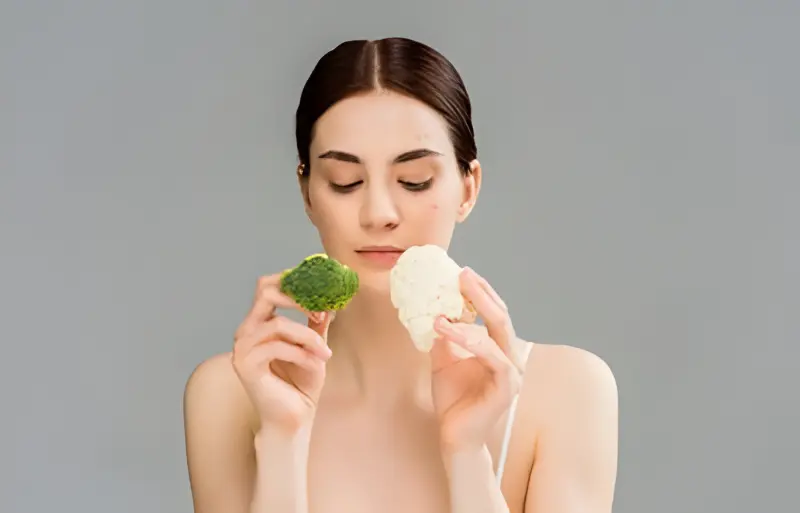
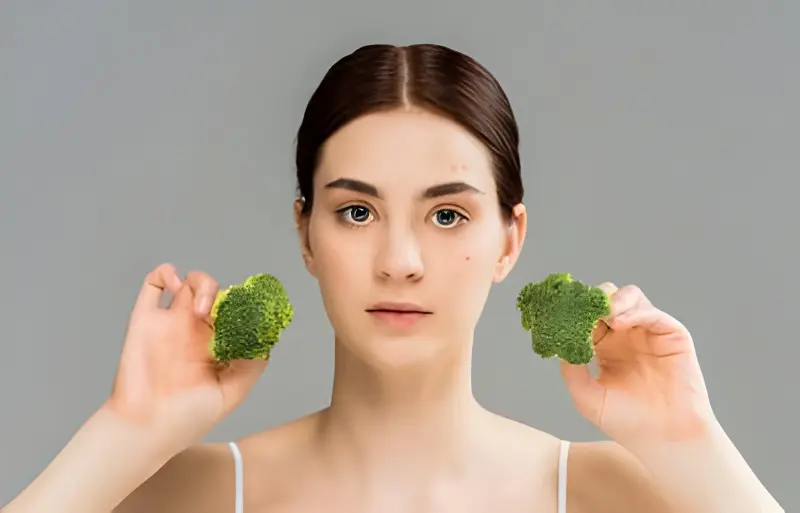
Diet and Lifestyle Changes for Clearer Skin
While there are many approaches to treating acne, one holistic approach is to make diet and lifestyle changes for clearer skin. Changes in Diet and Lifestyle for Clearer Skin While there are many approaches to treating acne, one holistic approach is to make changes in diet and lifestyle for clearer skin. These foods can cause body inflammation, resulting in breakouts. As these nutrient-dense foods provide essential vitamins and minerals for a healthy face, eat whole foods instead, including fruits, vegetables, lean protein, and healthy fats.
One of the main dietary changes that can help with acne is reducing processed and sugary foods in your diet. Inflammation can be caused by these types of foods, leading to breakouts. Vitamins and minerals are found in these nutrient-dense foods that contribute to a healthy complexion.
Drinking enough water is crucial for maintaining clear skin. Drink eight glasses of water a day and limit your caffeine and sugary beverage intake.
Another lifestyle change that can improve acne-prone skin is managing stress levels. Practicing yoga or meditation can help prevent flare-ups.
A regular workout is also essential for maintaining clear skin. When you exercise regularly, you boost blood flow to the skin cells, providing them with oxygen and nutrients while more effectively expelling waste products. Sweating during exercise also helps unclog pores by releasing trapped dirt and oils.
Getting enough sleep is needed for overall health, but it can also affect the appearance of our skin. Lack of sleep increases cortisol levels, causing inflammation and breakouts. For optimal health benefits, it’s recommended to get 7-9 hours of sleep each night. Our gut is closely connected to our skin, and imbalances in the microbiome can manifest as skin issues like acne.
Making diet and lifestyle changes is essential for achieving clearer skin holistically. By incorporating whole foods, staying hydrated, managing stress levels, exercising regularly, and getting enough quality sleep by caring for your gut health, you can enhance your overall well-being and attain a naturally radiant complexion. Remember that everyone’s body is unique; therefore, it’s important to listen to your own body’s needs when making these changes.
Natural Skincare Solution For Acne
Acne is a prevalent skin issue that impacts individuals of all ages. Proper skincare and treatment can help manage acne and improve skin health. It can be caused by various factors such as hormonal imbalances, diet, stress, and genetics. While many over-the-counter products are available for treating acne, in the long run, they often contain harsh chemicals that occur on the skin and cause more harm than good. This is why many people are turning to natural skincare remedies for acne as a safer and more holistic approach to treating their skin.
One of the most effective natural remedies for acne is tea tree oil. This essential oil possesses potent anti-inflammatory and antimicrobial properties that aid in diminishing redness, swelling, and infections linked to acne. It also assists in controlling sebum production, thereby preventing blocked pores, which can lead to breakouts. The oil can be applied gently to the affected area by mixing it with coconut or jojoba oil.
Another popular natural remedy for acne is apple cider vinegar (ACV). ACV has been utilized for centuries as a natural toner for its capacity to balance skin pH levels and unclog pores. It also contains acetic acid, which has antibacterial properties that fight against acne-causing bacteria.
Honey is another excellent natural ingredient for treating acne-prone skin due to its antibacterial properties. Raw honey works best for this purpose; apply it onto clean, damp skin and leave it on for 10-15 minutes before rinsing off with warm water.
For acne-prone skin that is inflamed or irritated, aloe vera gel is the ideal treatment. When using aloe vera gel, apply it after cleansing and leave it on overnight.
Incorporating certain changes into your diet can also help improve acne-prone skin. Fruits, vegetables, and green tea, which are rich in antioxidants, can reduce inflammation and promote skin health. Avoiding processed foods high in sugar or dairy products has also been linked to improving acne symptoms.
Natural skincare remedies for acne can be just as effective as conventional treatments but with the added benefit of being gentle on the skin and free from harsh chemicals. For optimal results, incorporate these remedies into your daily routine. For personalized treatment recommendations, consult a dermatologist if you have severe or persistent acne.
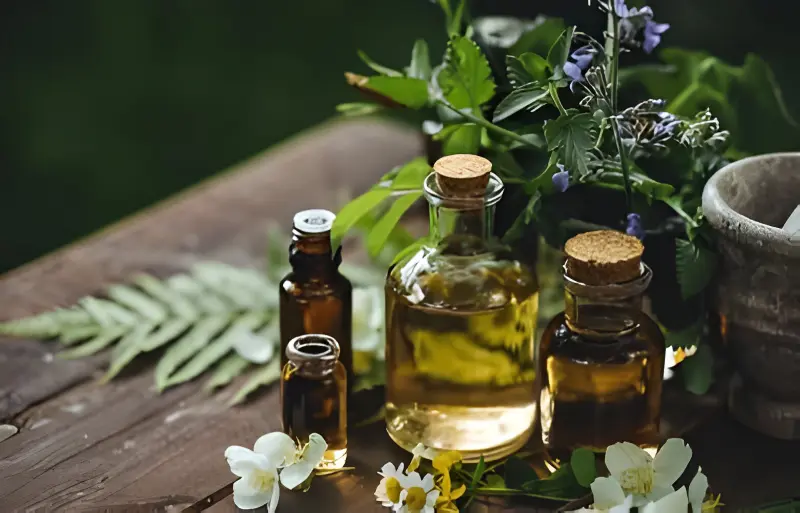
Essential Oils for Acne Treatment
Millions of people worldwide suffer from acne, which can be frustrating. Some individuals prefer holistic acne treatment over over-the-counter and prescription treatments. Essential care and essential oils have been used since ancient times to treat acne for centuries. They contain powerful anti-relieving PR properties, as well as antibacterial and antioxidant properties.
Tea Tree Oil: Tea tree oil treats acne. Its antibacterial properties can reduce inflammation and kill acne-causing bacteria. In addition, tea tree oil prevents clogged pores and reduces pimples by regulating sebum production.
Lavender Oil: The soothing properties of lavender oil make it an ideal choice for those with sensitive or inflamed skin. Acne scarring can also be reduced with lavender oil.
Rosemary Oil: It also has anti-inflammatory properties that calm acne-related redness and swelling and is rich in antioxidants that protect skin from pollution and UV rays.
Frankincense Oil: In addition to fading dark spots left behind by acne scars, Frankincense oil promotes healthy cell growth and regeneration.
Eucalyptus oil: Eucalyptus oil cools skin, which can help alleviate inflammation from pimples. Its antiseptic properties effectively clean out pores without removing essential oils from the skin. Additionally, it’s wise to conduct a patch test beforehand, as certain people may be allergic to specific essential oils.
Nevertheless, everyone’s skin is different, so what works for one person might not work for another.
Herbal Supplements for Clearer Skin
Herbal supplements have been used for centuries to treat various health issues, including skin problems. By addressing acne’s root causes rather than just its symptoms, these natural remedies provide a holistic approach to treating acne. Here are some herbal supplements that can help improve your skin’s clarity and promote healthy skin.
Saw Palmetto: This herb is widely known for its ability to balance hormones in both men and women. Hormonal imbalances can contribute to breakouts, making saw palmetto an effective supplement for acne-prone skin. It helps reduce excess sebum production and control inflammation, leading to clearer skin.
Burdock Root: Burdock root has anti-inflammatory and antibacterial properties, making it a great herb for treating acne. It contains compounds that assist the liver in detoxification, which is crucial for maintaining clear skin.
Turmeric: Turmeric has numerous health benefits, including improved skin health. Its powerful anti-inflammatory and antioxidant properties can ease acne-related redness and irritation.
Milk Thistle: Similar to burdock root, milk thistle is also known for its liver-supporting abilities. Promoting liver detoxification helps eliminate toxins from the body that would otherwise contribute to breakouts and other skin issues.
Neem: Neem is considered a holy herb in Ayurveda (traditional Indian medicine) due to its many medicinal properties. It has potent antibacterial qualities that can fight off bacteria responsible for causing acne breakouts on the skin.
Aloe Vera: Its anti-inflammatory properties also help calm inflamed pimples while promoting the healing of existing blemishes. Aloe vera not only soothes sunburns but provides many other benefits when taken as a supplement or applied topically to the skin.
Especially if you have preexisting medical conditions or are taking other medications, you should consult with a healthcare professional before taking herbal supplements. Also, keep in mind that results may vary for each individual, and it’s crucial to be patient as natural remedies take time to show their effects.
You can reduce acne breakouts and improve your overall skin health by incorporating these herbal supplements into your daily routine. A holistic approach such as this can help you achieve clearer and healthier skin over time.
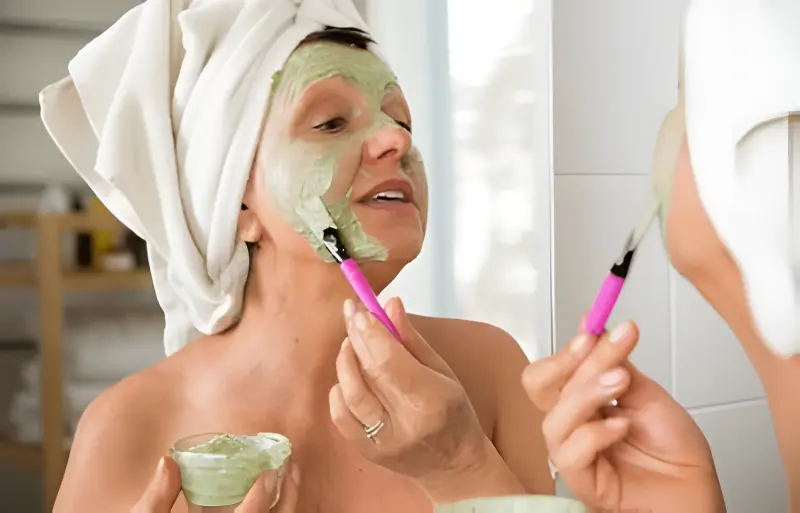
DIY Face Masks and Spot Treatments
DIY face masks and spot treatments are a great way to incorporate natural solutions into your acne treatment routine. These homemade remedies use simple, affordable ingredients that can be found in most kitchens, making them easily accessible for everyone. Here are some effective DIY face masks and spot treatments that will help improve the overall health of your skin.
Honey and Cinnamon Mask:
Honey has antimicrobial properties, while cinnamon is anti-inflammatory. Combined with cinnamon, honey has antimicrobial and anti-inflammatory properties. You can create a mask for acne-prone skin using these two powerful ingredients. For an effective acne-prone skin mask, mix equal parts honey and cinnamon powder. Leave it on for 10–15 minutes before rinsing off with warm water.
Turmeric powder can reduce redness and swelling associated with acne breakouts. Mix a small amount of honey or water with turmeric powder and apply the paste directly to the affected areas for 20 minutes, then rinse with lukewarm water.
Tea Tree Oil Spot Treatment:
With its antibacterial properties, tea tree oil is an effective spot treatment for acne-causing bacteria. Apply a drop directly onto the blemish and let it sit overnight before rinsing it off in the morning.
Bentonite Clay Mask:
Mineral-rich bentonite clay has absorbent properties and is ideal for drawing out impurities from the pores of the skin. To create a bentonite clay mask:
- Combine one tablespoon of clay powder with sufficient apple cider vinegar or water until a paste is formed.
- After applying the mask to the face, avoid the eye area.
- Rinse it with warm water after it has dried (approximately 10-15 minutes).
Aloe Vera Gel Spot Treatment:
To treat acne with aloe vera gel, apply it directly to the affected areas and leave it on overnight. Rinse off in the morning.
Adding these homemade face masks and spot treatments to your skincare regimen can enhance the well-being of your skin by lessening inflammation, soaking up extra oil, and combating acne-causing bacteria. Keep in mind that natural remedies may not be effective for all individuals, so it’s wise to do a patch test before using any unfamiliar ingredient on your skin. Moreover, if you have stubborn or recurring acne concerns, seeking advice from a dermatologist for tailored treatment options is advisable. Remember also to maintain a healthy diet, exercise regularly, and manage stress levels as part of your holistic approach to treating acne for healthy, glowing skin.
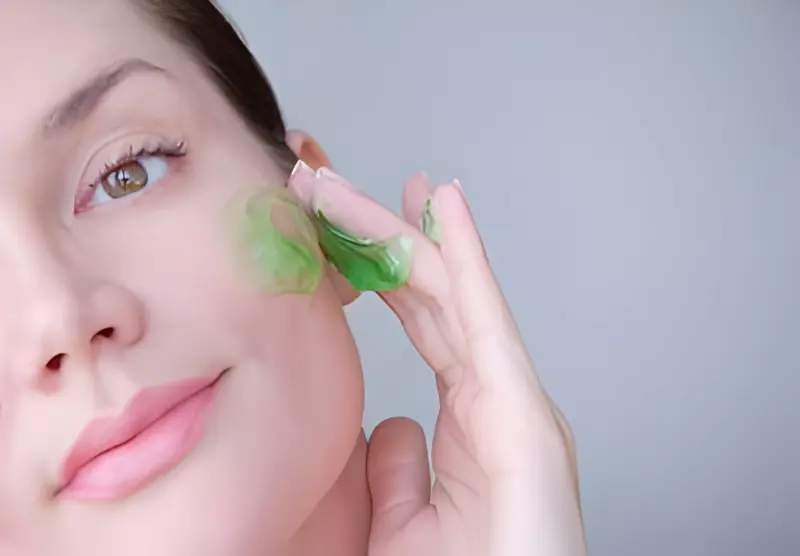
Healing Acne Scars with Home Remedies
While many medical treatments are available for healing acne scars, they can be expensive and may have side effects. Natural home remedies can also effectively reduce the appearance of acne scars without using harmful chemicals.
Aloe Vera Gel:
Aloe vera is known for its healing properties and has been used for centuries to treat various skin conditions. In addition to reducing inflammation, it promotes the growth of new skin cells. Applying freshly extracted aloe vera gel directly onto acne scars can help to fade them over time.
Lemon Juice:
Lemon juice lightens dark spots and acne scars. Apply fresh lemon juice to your scarred areas with cotton. Rinse it off with cool water after 10-15 minutes.
Honey:
Honey is not only delicious but also has fantastic antibacterial properties, which make it great for treating acne scars. It reduces redness and swelling and promotes healthy skin regeneration.Apply raw honey directly to your scars or mix it with other ingredients, such as cinnamon or turmeric, for added benefits.
Neem Oil:
Traditional y, neem oil has been used to heal various skin conditions, including acne scarring. When applied topically, it helps to heal damaged skin cells and reduce scarring.
Tea Tree Oil:
Tea tree oil fights bacteria. When applied to scarred areas, it is an effective treatment for preventing future breakouts and fading acne scars.
Baking Soda:
Baking soda exfoliates and promotes healthy skin regeneration. It balances pH levels, reducing scarring.
It should be emphasized that natural home remedies may require more time to produce visible results than medical treatments. The effectiveness of these remedies can differ based on the extent of your acne scars and how regularly you use them. Remember always to prioritize self-care and be patient, as healing takes time.
Lemon Juice and Honey
For centuries, lemon juice and honey have been used to treat various health issues, including acne. These two ingredients are not only easily accessible but also contain powerful properties that can help improve the overall health of your skin.
In addition to fighting free radicals and increasing collagen production, lemon juice has natural antibacterial properties that can help combat acne-causing bacteria on the skin. Lemon juice contains vitamin C, a powerful antioxidant. In addition to exfoliating dead skin cells, citric acid in lemon juice also unclogs pores, preventing future breakouts.
Honey, on the other hand, has both antimicrobial and anti-inflammatory properties. This makes it an excellent ingredient for soothing inflamed acne while keeping bacteria at bay. Honey is also known to be a humectant, meaning it helps draw moisture into the skin, making it soft and supple.
Together, these two ingredients make a powerful combination for treating acne holistically. Below are some ways you can incorporate lemon juice and honey into your skincare routine:
Lemon Juice Face Mask: Apply this mixture onto c the skin and leave it on for 15-20 minutes before rinsing off with warm water. This mask will help brighten your complexion while reducing inflammation and killing bacteria.
Honey Cleanser: Make a gentle cleanser by mixing raw honey with olive oil or coconut oil. It will not only cleanse your face thoroughly, but it will also provide hydration and nourishment to keep it healthy. Not only will this clean your face thoroughly, but it will also provide hydration and nourishment to keep your skin healthy.
Lemon Water Toner: Squeeze half a lemon into a cup of warm water and use this mixture as a toner after cleansing your face. Lemon water can balance your skin’s pH level while providing an additional dose of vitamin C.
Honey and Lemon Spot Treatment: If you have a pesky zit that needs to be treated immediately, mix equal parts honey and lemon juice and apply it directly onto the blemish. Leave it on for 10–15 minutes before rinsing it off. This spot treatment will help reduce redness and inflammation and promote faster healing.
When using these treatments during the day, always wear sunscreen since lemon juice can make your skin more sensitive to sunlight. Additionally, do a patch test before applying any new ingredient to your face to avoid any adverse reactions.
Incorporating lemon juice and honey into your skincare routine can provide natural solutions for healthy skin by treating acne from within. These ingredients not only improve the appearance of acne but also promote overall skin health for a radiant complexion.



